Is CBD Legal in Germany?
In recent years, the legal landscape surrounding CBD in Germany has experienced significant changes, prompting many to ask: Is CBD legal in Germany? In this comprehensive guide, we delve into the nuances of CBD legality in Germany, exploring the differences before and after the new legislation.
Estimated reading time: 9 minutes
- Understanding CBD
- Are cannabinoids legal in Germany?
- Previous Legal Status of CBD in Germany
- Cannabis history
- The Evolution of Cannabis Laws in Germany
- An updated Legislation: What Changed?
- Navigating the CBD Market in Germany
- What is the new German Law concerning Cannabis?
- The Purpose of Germany's Legislation
- The Journey Ahead: Prospects for German Cannabinoid Culture
- Conclusion
- FAQ – New cannabis law in Germany
Understanding CBD
Before delving into the legal intricacies, let's clarify what CBD is. CBD, short for cannabidiol, is a compound found in the cannabis plant. Unlike its counterpart THC (tetrahydrocannabinol), CBD is non-psychoactive, meaning it doesn't produce the “high” typically associated with cannabis use.
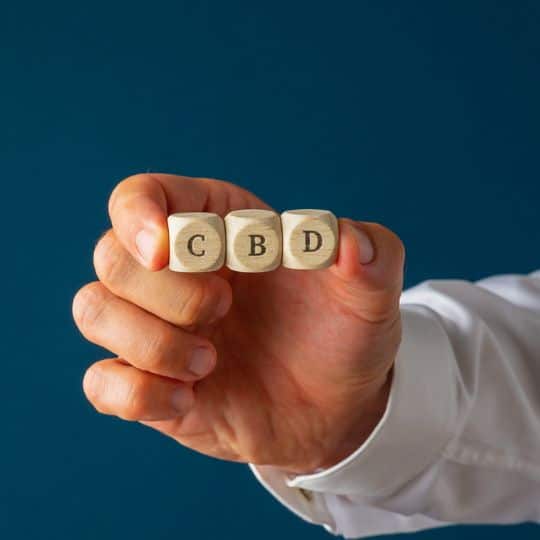
Are cannabinoids legal in Germany?
Indeed, certain cannabinoids find legal sanctuary within the confines of German law, albeit under specific conditions. Germany aligns with the broader stance of the European Union (EU), wherein non-edible CBD products are generally deemed permissible for somewhat unfettered distribution as long as they contain less than 0.2% delta-9 tetrahydrocannabinol (THC).
Previous Legal Status of CBD in Germany
Before the recent legislative changes, the legal status of CBD in Germany was somewhat ambiguous. While CBD products containing less than 0.2% THC were generally considered legal, there was still some uncertainty and inconsistency in enforcement across different regions.
Exciting changes are happening in Germany as the Bundestag works hard to update cannabis regulations! Two draft bills are on the table—one to legalise cannabis possession for adults and another to remove cannabis from the narcotics code. But there's a twist: EU directives are putting pressure on Germany's decisions, impacting economic ties. Instead of going full throttle on commercial cannabis, the focus is now on allowing possession and forming “grower clubs.” Germany is leading the way in accepting cannabinoids in Europe, but there are still hurdles to overcome. However, with continued investment, Germany aims to tackle these challenges head-on!
Cannabis history
Diving into German Cannabis History So, in “Marijuana Medicine,” Christian Rätsch takes us on this wild ride back to Thuringia, Central Germany, around 7,500 years ago. And get this, they found cannabis seeds chilling in Wilmersdorf ashes from way back in 500 BC. Crazy, right?

The Evolution of Cannabis Laws in Germany
Cannabis made its legal debut in German legislation in 1981 with the enactment of the BtMG, marking the country's inaugural foray into regulating the production, possession, and consumption of cannabis and its derivatives. Despite this, Germany's reputation for leniency towards drug possession and usage has endured. While the possession of most narcotics remains illegal, enforcement and prosecution are relatively lax compared to the United States.
Germany's laissez-faire approach towards cannabis was pronounced in 2007 when it became one of the pioneering nations to legalise medical cannabis. However, the initial legislation was so restrictive that by 2015, only a mere 300 Germans had access to medical cannabis products.
The tide turned in 2017 when Germany overhauled its medical cannabis legislation, leading to a significant expansion of the program. Consequently, it became practically feasible for all Germans to procure and possess cannabis through the state medical system. This liberalisation sparked a boom in the German cannabinoid industry, with Statista estimating that over 6.7 million Germans now utilise cannabis—a meteoric rise from just 600,000 patients post the 2017 program expansion.
This catapults Germany into one of the largest global cannabinoid economies, trailing closely behind Canada. The prospect of rivalling America's cannabinoid economy looms, given Germany's sizable population.
In the wake of these developments, German legislators are poised to further liberalise the country's cannabis economy, heralding an auspicious era for exploring Germany's stance on cannabinoids.
An updated Legislation: What Changed?

In May 2022, Germany introduced new legislation regarding CBD products, bringing clarity to the legal status of CBD in the country. Under the new law, CBD products containing up to 0.3% THC are now legal for sale and consumption in Germany. This change aligns with the regulations set forth by the European Union, providing a unified framework for CBD across member states.
Implications of the New Legislation
The new legislation has significant implications for consumers, retailers, and the CBD industry as a whole. With clearer guidelines in place, consumers can now have greater confidence in the legality and quality of CBD products available in the market. Additionally, retailers can expand their offerings to include a wider range of CBD products, catering to the growing demand.
Regulatory Oversight and Quality Assurance
Despite the legalisation of CBD products, regulatory oversight and quality assurance remain paramount. The German authorities have implemented strict regulations to ensure the safety and quality of CBD products. This includes mandatory testing for potency and contaminants, as well as stringent labelling requirements to provide consumers with transparent information.
Navigating the CBD Market in Germany
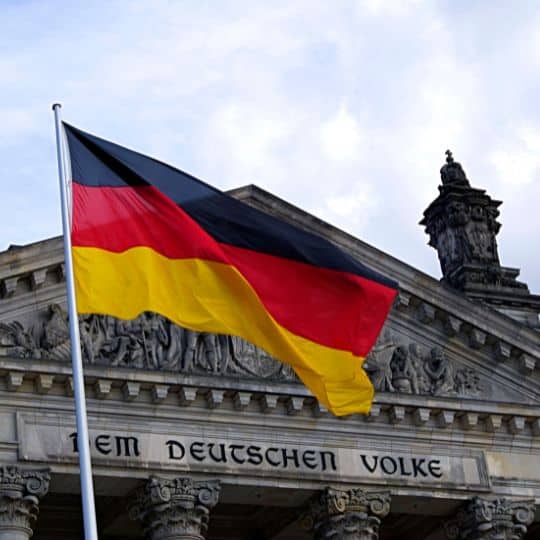
As the CBD market continues to evolve, consumers are encouraged to exercise due diligence when purchasing CBD products. It's essential to buy from reputable retailers who adhere to regulatory standards and provide third-party lab reports for transparency. Additionally, consumers should be aware of the legal limits on THC content and ensure compliance with local regulations.
Germany's stance on cannabinoids, particularly THC, may seem idiosyncratic, yet its perspective on CBD, CBG, and other non-intoxicating cannabinoids mirrors broader European sentiments. Nevertheless, comprehending Germany's perspective necessitates delving into its intricate cannabis history.
CBD, for instance, enjoys legal status in Germany under both domestic law and EU regulations. Notably, CBD falls outside the purview of the BtMG, and EU regulations permit the use of cannabis with less than 0.2% THC for industrial or scientific purposes, refraining from intoxicating use.
However, German courts have grappled with CBD-related cases, occasionally misclassifying products with less than 0.2% THC as intoxicating. Nonetheless, with evolving EU regulations and Germany's growing acceptance of cannabis, such misunderstandings are poised to diminish.
Regarding THC, its legality in Germany is confined to medical cannabis obtainable exclusively through state-run pharmacies, necessitating a doctor's prescription for purchase. Despite Germany's strides in embracing cannabis, recreational usage remains illegal, mandating proper medical authorisation or adherence to EU guidelines regarding THC content.
More about CBD
What is the new German Law concerning Cannabis?
Under the new law 2/4 2024:
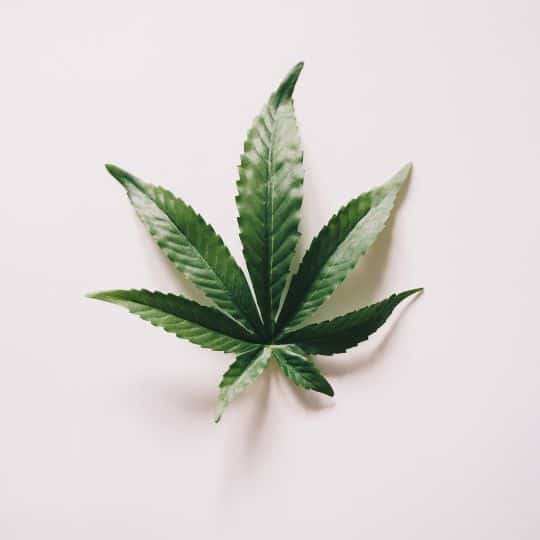
Individuals can possess up to 50g of cannabis for personal use and grow a maximum of three plants. In public spaces, adults are permitted to carry up to 25g of cannabis.
A Shift in Policy: Germany Leads the Way
The recent vote sets the stage for the legislation to take effect in April, pending potential delays by the Bundesrat or Federal Council, and subsequent presidential approval.
The Purpose of Germany's Legislation
The primary objectives of the German law are to curb the black market, deter underage consumption, and mitigate the risks associated with excessive tetrahydrocannabinol (THC) consumption, the primary psychoactive component of cannabis.
Balancing Access with Regulation
While the legislation permits private cultivation, strict measures are in place to safeguard against underage access. Cannabis clubs, authorized for non-commercial distribution, face rigorous regulations including membership limits and advertising bans.
Controversy and Criticism
Despite the legislative progress, dissenting voices remain. Some, like Alexander Dobrindt of the CDU/CSU parliamentary group, deem the law “irresponsible,” citing concerns from law enforcement and medical professionals. Dr. Klaus Reinhardt of the German Medical Association warns of the potential health risks, particularly among young users.
Where to buy The Real CBD in Germany
- Buy CBD in Berlin
- Buy CBD in Cologne
- Buy CBD in Dortmund
- Buy CBD in Dusseldorf
- Buy CBD in Essen
- Buy CBD in Frankfurt
- Buy CBD in Hamburg
- Buy CBD in Leipzig
- Buy CBD in Munich
- Buy CBD in Stuttgart
The Journey Ahead: Prospects for German Cannabinoid Culture

Germany's intricate tapestry of history and cultural distinctness shapes its approach towards cannabis legislation. While deference to EU directives fosters European unity, it sometimes eclipses Germany's uniqueness in its relationship with cannabis.
In engaging with the German populace or legislators on cannabis issues, acknowledging this cultural distinctness can forge a potent alliance. Respect for Germany's diplomatic finesse coupled with an appreciation for its rich cannabis heritage can cultivate a shared vision for cannabis's reinstatement within its ancestral pharmacopoeia.
This nuanced approach holds the promise of propelling Germany towards its destined role as the epicentre of the European cannabis industry. The challenges besetting the German cannabinoid market today pale in comparison to the future being sculpted by industry visionaries.
Embrace the complexity, navigate the labyrinth, and witness the blossoming of Germany's cannabinoid renaissance.
Conclusion
In conclusion, the legality of CBD in Germany has evolved significantly with the introduction of new legislation. With clearer guidelines in place, consumers and retailers alike can navigate the CBD market with confidence. By staying informed and adhering to regulatory standards, Germany is paving the way for a thriving and responsible CBD industry.
FAQ – New cannabis law in Germany

CBD, short for cannabidiol, is a compound found in the cannabis plant. In Germany, CBD products containing up to 0.3% THC are legal for sale and consumption under the new legislation introduced in May 2022.
Certain cannabinoids are legal in Germany under specific conditions. Products containing less than 0.2% THC are generally permissible for distribution in accordance with EU regulations.
Before the new legislation, the legal status of CBD in Germany was somewhat ambiguous. Products with less than 0.2% THC were generally considered legal, but enforcement varied across different regions.
The new legislation provides clearer guidelines for CBD legality in Germany, boosting consumer confidence and allowing retailers to expand their offerings. CBD products containing up to 0.3% THC are now legal for sale and consumption.
The primary objectives of Germany's cannabis legislation include curbing the black market, deterring underage consumption, and mitigating risks associated with excessive THC consumption.
Sources
https://doi.org/10.1177/002204260203200218
https://www.loc.gov/item/global-legal-monitor/2017-03-13/
https://www.statista.com/topics/11023/
https://cms.law/en/int/expert-guides/

I am a certified expert in Medicinal Cannabis. We are all about giving correct and trustworthy information. We know how important it is to learn about CBD and cannabis, which is why we want to be your go-to source for trustworthy information. We help you improve your health by using our knowledge and experience as a starting point.

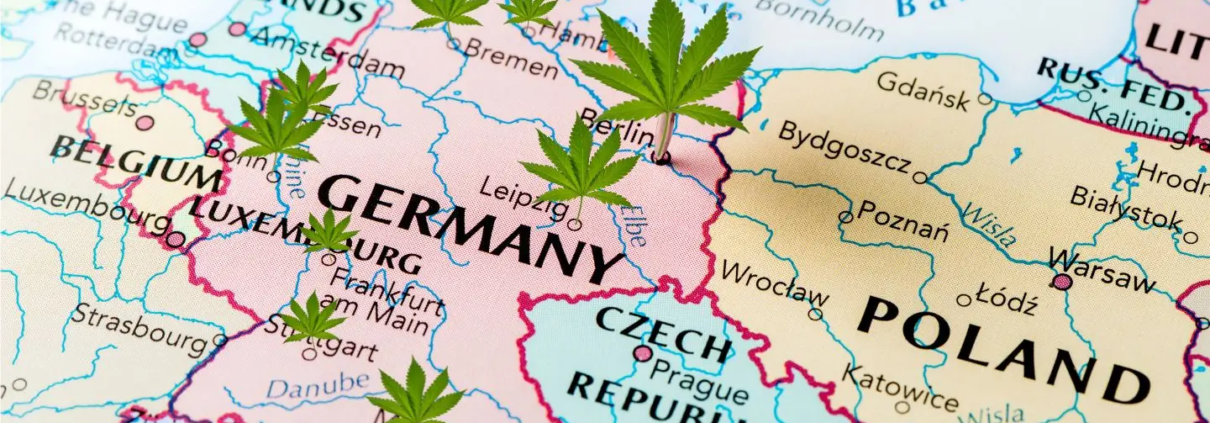







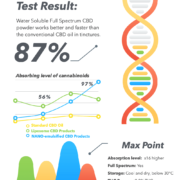




Leave a Reply
Want to join the discussion?Feel free to contribute!